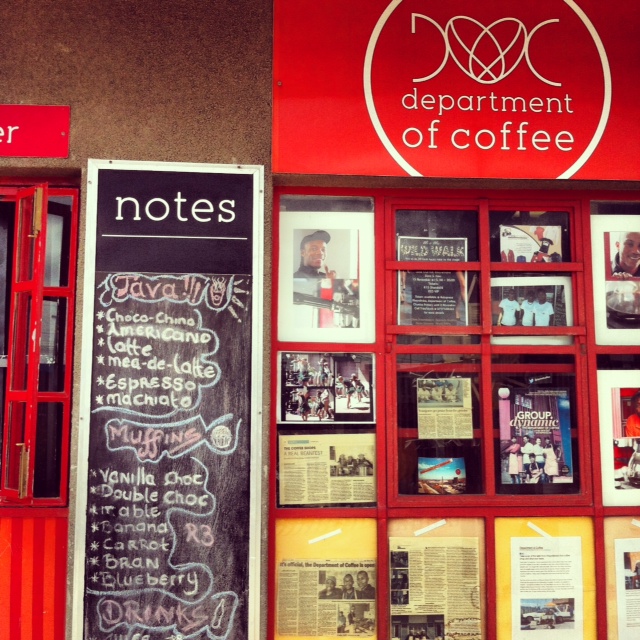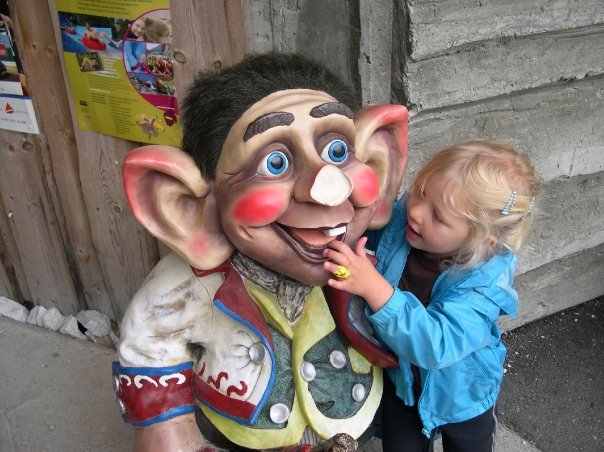
On a blustery Sunday late last summer the girls and I had cabin fever so we decided to take a stroll down the road to what we consider our back garden, the Green Point Urban Park. Long before we got there we saw throngs of people crossing the Main Road and streaming in. There must have been hundreds of men and women in long, white robes, their garments blowing out in the wind as they trekked down the long walkway with children and blankets and baskets in tow.
We stopped at a water fountain where an old man was leaning, watching a bunch of men on their knees bowing down in prayer. I asked him what the occasion was and he explained that it was Mouloed, the prophet Mughamad’s birthday, and a very important event in the Islamic calendar. We continued to wander amongst the crowds, following the music. On the grassy plain that stretches out before the amphitheatre families sat in relaxed reverence as a male choir sang songs of such astonishing poignance and beauty that the three of us stopped dead in our tracks and didn’t move again for a long time. I forgot to be self-conscious in my tatty denim shorts as I became part of the celebration and absorbed the voices ringing out in praise, a south-easter lifting and carrying them up to their God.
It was foreign and familiar in equal measures. Islam might not be my religion, but it’s my heritage, and one of the most precious sounds I’ve ever heard was when I returned to Cape Town after a long time away and suddenly, on the wind, I could faintly make out the unmistakable, mournful strains of the Imam singing the evening prayer. And I stopped absolutely dead and listened with all my soul because I was home. When I was a small girl my granny and grandpa lived on the top floor of a tall block of flats off Greenmarket Square. That was the sound I would hear through the open window as I sat perched on my granny’s kitchen counter, swinging my legs as she peeled vegetables, and to this day it fills me with gladness.
The first time I ever visited Bo Kaap in the early nineties (it didn’t have cool coffee shops and galleries back then) was when my friend Zulfa invited my boyfriend and I around for supper one Friday night. I am certain it was the first time I ever had supper in a not-white person’s house, and I was excited and a little bit nervous. She had been explaining ‘Bismillah’ to me, and wanted me to experience it in person. ‘Bismillah’ is the belief that whenever you feed people who visit your home, strangers or otherwise, you are honouring Allah and you will be rewarded in heaven. The food was every bit as wonderful as I had imagined, her mom having made every samoosa, daltjie and sweet pickle from scratch. We sat around their smart dining-room table and they treated us ungodly, pale strangers like honoured guests.
Zulfa remains my friend and one of the best human beings I’ve ever known and we still refer fondly to that night with her beloved mom and dad who have since passed away. And when we get together, as we did a few weeks ago (in one of those ultra cool coffee shops that line Rose Street now) we laugh so much our stomachs hurt when we say goodbye, and I wonder why I don’t talk to her every day because she is like tonic.
Sometimes when we take the girls and ourselves for a walk along the promenade at the weekend we’ll be lucky enough to encounter a Muslim wedding party with all its miniature brides and grooms, and it’s such an occasion and so ostentatious and proper and wonderful it really puts the rest of us and our blasé ways to shame. Because, really, what is this world without its rituals and formalities and dresses of shiny, white satin? We need this stuff to give life magic. Otherwise it’s just a series of grocery shops.
A while ago, coming down Lion’s Head, we found ourselves outside that little building that looks like a mosque but is actually the burial site of some very pious people called Saits (Zulfa told me) who were responsible for bringing Islam to the Cape. I’m not sure what it’s used for exactly, so far from everything, but I’ve always been attracted to holy buildings so I took off my shoes and went inside. You can immediately feel you’re not just in any old room. The air was suffused with incense and something that felt like grace. I took in the curly gold lettering and the stars and moons and the swathes of velvet and I felt a little bereft, having no religion to call my own and this one being so pretty. And I offered a prayer to Allah that he would watch over his lost children, too.














